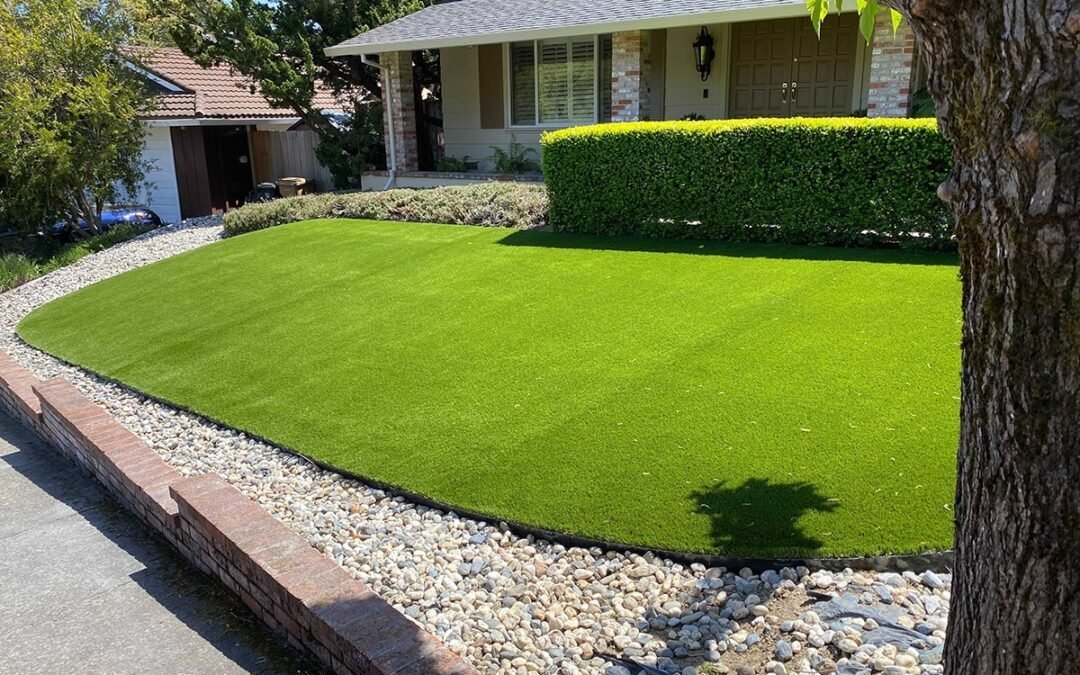The synthetic lawn movement is gaining momentum as homeowners discover the multitude of benefits that come with making the switch. From water conservation to reduced maintenance, the appeal of synthetic lawns is undeniable. Here are the top 10 reasons why homeowners are opting for synthetic lawns:
-
Water Conservation: A Parched Reality
Amid prolonged droughts in the western United States, water usage and costs are significant concerns. Synthetic lawns offer a solution, prompting legislators to support the switch with bills aimed at protecting those choosing synthetic options. Homeowners are motivated by the tangible water savings, contributing to both environmental sustainability and cost-effectiveness.
-
Allergen Reduction: A Breath of Fresh Air
Traditional lawns often trigger allergies with dust and pollen in the air. Synthetic lawns eliminate this issue, providing a dust and dander-free environment. Homeowners can enjoy their yards without the inconvenience of itchy eyes and constant sneezing.
-
Mowing-Free Lifestyle: Breaking Free from the Blades
Mowing is a laborious and often disliked chore. The associated costs, including fuel, maintenance, and time spent, make it an ongoing expense. Synthetic lawns offer a respite from mowing, with the added benefit of cost recovery within 3 to 5 years. The long-term financial advantage is a compelling reason for homeowners to make the switch.
-
Year-round Lush Greenery: Defying Droughts
In drought-prone regions, maintaining a lush, green lawn can be challenging. Synthetic lawns ensure a vibrant green appearance year-round, regardless of water scarcity or climatic conditions.
-
Minimal Maintenance: Embracing Leisure
Beyond eliminating mowing, synthetic lawns also eliminate other time-consuming tasks like edging and weeding. Homeowners gain more leisure time to appreciate a beautiful yard and engage in family activities.
-
Slope Stabilization: Upholding the Hills
Some cities permit synthetic lawns due to their slope-stabilizing benefits. The installation process, involving a soil stabilizing fabric layer, contributes to stabilizing slopes and hills, preventing erosion.
-
Reduced Heat and Glare: Dispelling Myths
Contrary to common misconceptions, properly installed synthetic lawns don't generate excessive heat. In residential settings, they emit no more heat than traditional grass landscapes, ensuring comfort for homeowners.
-
Decreased Need for Pesticides: A Greener Approach
As environmental awareness grows, homeowners seek alternatives to pesticides. Synthetic lawns significantly reduce the need for expensive and environmentally harmful pesticides, aligning with current ecological trends.
-
Increased Outdoor Playtime: A Playground at Home
Children love outdoor play, but natural yard conditions often dictate when it's possible. Synthetic lawns offer a stable and safe play surface, eliminating bumps and holes. Children can enjoy outdoor activities regardless of weather conditions.
-
Quick and Easy Makeover: Transforming the Landscape
Installing or replacing a natural grass yard involves uncertainty and risk. Synthetic lawns offer a swift and foolproof makeover. The installation process is efficient, ensuring families quickly embrace a lush green landscape without the uncertainties associated with traditional grass.
The decision to transition to a synthetic lawn is undoubtedly significant, and homeowners nationwide are contemplating this choice. The numerous advantages, ranging from water savings to reduced maintenance, make the switch to synthetic lawns a compelling and satisfying decision for years to come. Embrace the synthetic side for a greener, more sustainable future in your own backyard.



Leave a comment
This site is protected by hCaptcha and the hCaptcha Privacy Policy and Terms of Service apply.